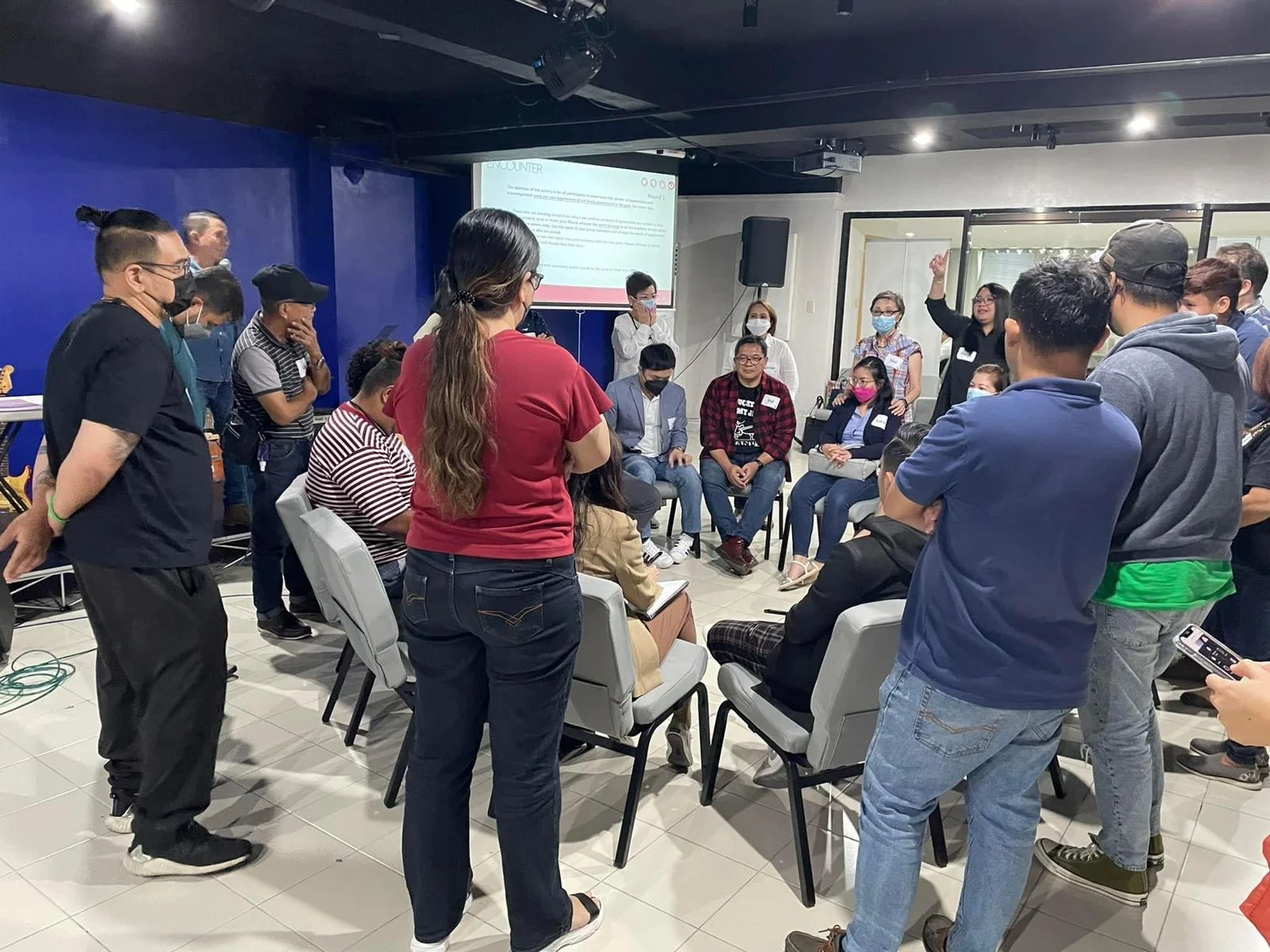One of the best things about the Lead Like Jesus Encounter is the unique experience it brings for growth in leaders. It works because leaders take time out for positive self-care as they uncover brand new ways to further practice God’s presence. Through solid Bible teaching, group interaction and vulnerable activities, participants are encouraged to become engaged and to explore fresh ways to grasp a deeper understanding of the passion of God.
Even as I led my first Lead Like Jesus Encounter as a new facilitator, the activity for the Being Habits Diagram proved to be a meaningful opportunity for me to be renewed and refreshed by a personalized revelation of God’s love. It’s wonderful to be reminded how we imitate Jesus as our standard and model for absolute love. Through Jesus’ sacrifice, God loves us unconditionally. Romans 5:8 reminds us, “But God demonstrates his own love for us in this: while we were still sinners, Christ died for us.” The Being Habits Scriptures Activity began with the group reading aloud several verses about God’s love for us. One of my favorites: “And so we know and rely on the love God has for us. God is love. Whoever lives in love lives in God, and God in him.” 1 John 4:16
To practically apply the Being Habits Scriptures Activity, the group was instructed to place their name tag on their back left shoulder. And then one half of the group were instructed to place their chairs in a circle and were seated. The remaining half stood behind the people that were seated, one person behind each chair. Each person standing received a card with a scripture verse on it. We were encouraged to think about what our Heavenly Father says to us about this kind of loving relationship. We were told to lean over and whisper into the ear of the person in front of us the verse, inserting the person’s name into the blank. We would then move clockwise around the circle and continue the process — whispering the verse in each person’s ear.
As the activity got underway, God’s sweet voice whispered truth to water my parched and dry soul. I felt a warmth of the comforting presence of the Holy Spirit come over me, as tears of joy, relief and loss fell onto my lap.
“Sheryl, I no longer call you ‘servant.’ I call you ‘friend.’ ”
“Seek first my kingdom and all you need will be yours, Sheryl. ”
“I know the plans I have for you, Sheryl. Plans to prosper you, not to harm you. ”
“Sheryl, I forgive you.”
My mind froze on the ‘I forgive you’ phrase. In that moment, I slowly repeated the three words in my mind, and thanked my heavenly Father for forgiving me. Now it was my turn to forgive myself. I hadn’t realized I was stuck.
As leaders, we will have opportunities to forgive, but some of us will have many opportunities. God gave us a way to keep the lines of communication open between Him and us. “We must forgive, so that no advantage is taken of us by Satan, for we are not ignorant of his schemes,” the Apostle Paul told us in 2 Corinthians 2:10, 11 (NIV). Forgiveness is a choice; it’s a decision, a crisis of the will. Jesus reminds us in Luke 6:36, “Be merciful, just as your Heavenly Father is merciful” (NIV). Although it is still our choice, if we want mercy, we are commanded to be merciful through forgiveness. It’s up to us to remember that our Heavenly Father has granted us substitutionary forgiveness through His Son, Jesus. The Old Testament records God’s requirement for the blood of a lamb to satisfy the substitutionary requirement.
Hebrews 9:22 explains the concept of an innocent life in payment for the sin of a human being; “The law says that almost everything must be made clean by blood, and sins cannot be forgiven without blood to show death” (NCV). The Lord Jesus is our substitute, literally becoming sin for us. “Look, the Lamb of God, who takes away the sin of the world” (John 1:29 [NIV]). Jesus’s crucifixion wounds belonged to us; He was punished in our place to satisfy God’s requirement. His sacrifice provided for our righteousness. “Christ had no sin, but God made him become sin so that in Christ we could become right with God.”(2 Corinthians 5:21 [NCV]). The choice to forgive others means no one really forgives without bearing the consequences of the other person’s sin. The act of forgiveness is application of the substitution Christ offered to his Heavenly Father for us.
In The Being Habits Activity that day, I understood God’s act of forgiving me. Now it was time for me to forgive myself. To fully abide in God’s love, he wanted me to love myself and accept the work he wanted to do in my life. It was up to me to decide whether or not I would accept God’s full forgiveness and refuse to play the enemy’s deceitful game of dodging missiles of blame, shame and unworthiness . I chose to let go of the grudge I held against myself.
1 Corinthians 13:5 says, “Love keeps no record of wrongs” (NIV). We must not keep lists of anything that has hurt, angered, offended, or wronged us. It’s only through God’s power this is possible. We give God permission to do whatever He wants with us when we choose forgiveness instead of bitterness. This is one of the most difficult steps of faith we will ever take. Martin Luther King, Jr. said, “Forgiveness is not an occasional act, it is a permanent attitude.” Forgiveness should actually begin at the time of the offense. Forgiveness is the only way to follow God in faith. (exert from Sheryl Giesbrecht’s book, “Get Back Up: Trusting God When Life Knocks You Down” pages 34 – 36.)
I could rest in God’s love by abiding, as I choose to fully accept and claim His forgiveness and grace that day. It was encouraging, uplifting and restorative. I discovered healing for the broken and bruised places I hadn’t found resolution before. Because I let God in, he loved me completely, for the first time, I could love myself. I forgave myself for my past mistakes. I accepted the work He wanted to do in my heart, spirit and soul as I heard the echoed whisper in my ear, “Sheryl, I forgive you.” And the results of my belief in the completely thorough manner of God’s complete forgiveness has affected the way I think, live and lead. What about you? Have you heard God’s whisper lately? Maybe it’s time to stop and listen.










